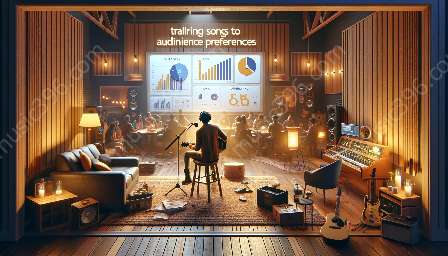Music has evolved significantly over time, influenced by cultural, technological, and societal changes. Co-writing, where multiple songwriters collaborate, has played a crucial role in shaping musical trends and styles. This article delves into the historical evolution of musical trends, the impact of co-writing, and relevant tips and techniques for effective songwriting.
Historical Evolution of Musical Trends
The evolution of musical trends and styles is deeply intertwined with various historical, cultural, and artistic influences. From the classical compositions of Mozart and Beethoven to the revolutionary sounds of the 20th century, music has continuously transformed to reflect the changing landscapes of society.
For instance, the emergence of jazz in the early 20th century was a result of cultural fusion and creativity, with musicians collaborating and experimenting with new musical styles. Similarly, the rise of rock and roll in the 1950s brought about a shift in popular music, driven by collaborative songwriting, innovative instrumentation, and rebellious attitudes.
As technology advanced, electronic music and synthesizers revolutionized the soundscapes of the 1980s, paving the way for new genres and collaborative approaches to music production. Throughout these shifts, co-writing has been a constant force, enabling artists to blend diverse influences and create groundbreaking compositions.
The Impact of Co-Writing on Musical Trends
Co-writing has been instrumental in shaping musical trends and styles by fostering collaboration among artists with diverse backgrounds and talents. In the realm of popular music, co-writing has led to the creation of iconic hits and genre-defining tracks. Collaborative songwriting allows artists to pool their strengths, drawing from various influences to create unique and innovative compositions.
Moreover, co-writing provides a platform for musicians to exchange ideas, experiment with different musical elements, and infuse their individual styles into a collective work. This collaborative process often results in dynamic and multidimensional music, transcending traditional genre boundaries and resonating with diverse audiences.
Furthermore, co-writing has proven to be a catalyst for musical innovation, pushing the boundaries of conventional song structures and arrangements. From co-penning emotionally resonant lyrics to co-creating intricate melodies, collaborative songwriting has been a driving force behind the evolution of new musical genres and styles.
Co-Writing Tips and Techniques for Effective Songwriting
To harness the creative potential of co-writing, songwriters can benefit from employing effective tips and techniques to facilitate successful collaborations. Establishing a clear communication framework, fostering a supportive environment, and respecting each contributor's artistic vision are foundational elements for productive co-writing.
Furthermore, embracing open-mindedness and remaining receptive to diverse musical influences can stimulate innovation and yield compelling compositions. Additionally, leveraging technology and digital platforms for remote co-writing enables songwriters to collaborate across geographic boundaries, expanding their creative networks and exploring varied perspectives.
Songwriters can also enrich their co-writing experiences by attending workshops, joining songwriting circles, and engaging in co-writing camps to forge creative partnerships and exchange valuable insights.
Implementing these tips and techniques empowers songwriters to navigate the collaborative process effectively, resulting in cohesive, impactful, and genre-defying musical creations.
In Conclusion
The evolution of musical trends and styles through co-writing embodies a rich tapestry of artistic ingenuity, cultural exchange, and collaborative innovation. From the classical era to the digital age, music has continuously evolved, propelled by the synergistic efforts of co-writing. By understanding the historical influences, embracing the impact of co-writing, and employing effective tips and techniques, songwriters can embark on transformative musical journeys, shaping the future trajectory of musical expression.

























